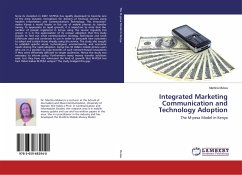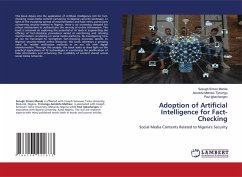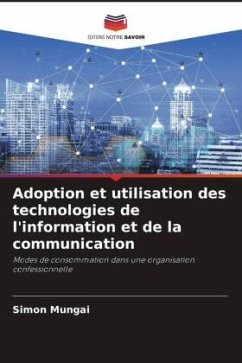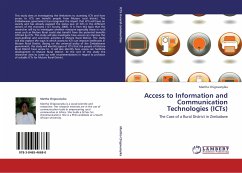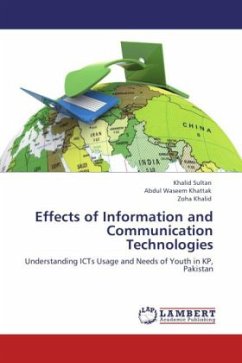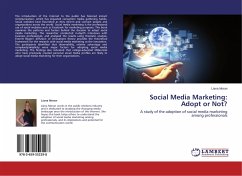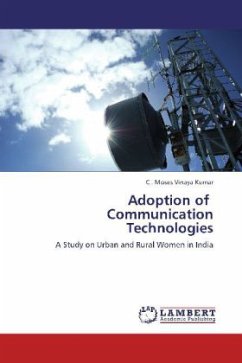
Adoption of Communication Technologies
A Study on Urban and Rural Women in India
Versandkostenfrei!
Versandfertig in 6-10 Tagen
52,99 €
inkl. MwSt.

PAYBACK Punkte
26 °P sammeln!
Communication is an interactive process in which information, knowledge and skills are exchanged between information providers. In this process all citizens may be innovators, intermediaries and receivers of information and knowledge. The need to transfer or communicate information prompts the adoption of communication tool. Women need to have the necessary information for informed decision-making and the relevant skills to improve their livelihoods. Communication in this context is therefore a non-linear process. Although telephone was marketed primarily as business instrument, later it was a...
Communication is an interactive process in which information, knowledge and skills are exchanged between information providers. In this process all citizens may be innovators, intermediaries and receivers of information and knowledge. The need to transfer or communicate information prompts the adoption of communication tool. Women need to have the necessary information for informed decision-making and the relevant skills to improve their livelihoods. Communication in this context is therefore a non-linear process. Although telephone was marketed primarily as business instrument, later it was appreciated by the women for social and personal ends. This research explores urban and rural gender differences in a developing nation like India, in telephone use and the social meaning of those differences and its implication for understanding the nexus of women and use of telephone-a gadget of communication technology.




